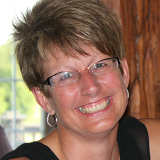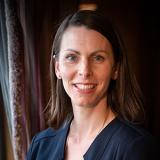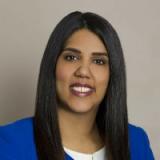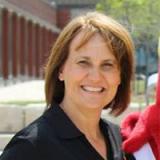Recreation Therapy - 283
Overview
What is Recreation Therapy?
- Recreation Therapy is person-centred: Our approach is about the individual, their needs and their passions, find out what lights their fire, and help them attain it.
- Recreation Therapy breaks barriers: It’s about inclusion and empowering individuals to live their fullest life despite any limitations.
- Recreation Therapy is evidence-based: Leisure is always purposeful and rooted in research, which matches specific interventions to specific client groups.
- It is a healthcare field that enriches lives. Recreation Therapists work in a variety of clinical & community settings and work with people across the lifespan. (Adapted from Lifeinfull.ca)
Program Highlights
- At Mohawk, we are committed to providing the best experiential learning through the integration of theory and practice. Our commitment to experiential learning is supported by faculty who understand its value.
- Students gain 500 hours of practical experience in the field through multiple practicum experiences with over 400 agencies in our database.
- We offer two unique outdoor RT course experiences (overnight at camp) which has been shown to engage students, increase sense of belonging among peers and faculty, and contribute towards student success. Students say it is one of the most memorable parts of the program!
- We offer over 6 certifications and workshop trainings to set students apart on their job applications. Classroom learning is enhanced with our own experiential learning lab as well as the use of a Multisensory environment lab space.
- Mohawk College’s Therapeutic Recreation curriculum has been successfully reviewed and determined to be in alignment with the Therapeutic Recreation Ontario (TRO), and Essential Competency Framework (ECF). As a result, graduates of this program (283, 353) are eligible to apply for the Registration designation with the Therapeutic Recreation Ontario (TRO) upon graduation.
- As a student in the program, you will receive a student membership with Therapeutic Recreation Ontario (TRO)
Interested in a compressed schedule with enhanced flexibility?
Check out our Recreation Therapy - 353 accelerated intake which can be completed in 16 months of consecutive study.
What you'll learn
- Theoretical foundation and practical skills to plan, implement and evaluate therapeutic recreation services for individuals at all stages in life who experience barriers to healthy leisure.
- How to provide person centred care, empower individuals to give as much choice as possible back to the participant.
- Assess leisure interests to create meaningful goals and specific outcomes for clients to achieve through therapeutic recreation interventions.
- Facilitate recreation therapy interventions such as; music, horticulture, reminiscence, adventure, and animal therapies, adaptive sports, discussion groups, exercise programs, journaling, intergenerational programming.
- Develop leadership skills through individual and group presentations which are a core competency in the program
Program Length
2 academic years (periods of 8 months)
View the Exceptions Calendar for start dates and semester break information.
Admission
Admission
Domestic and International student admission requirements
- OSSD or equivalent (Mohawk Academic Upgrading, GED) including:
- Grade 12 English, C or U or equivalent (70% guideline)
Language Requirements for Applicants with English as a Second Language
- See below for accepted equivalents for Grade 12 English:
- Successful completion of the GAS-English for Academic Purposes (478) program
- TOEFL minimum score of 560 (83 Internet based)
- or IELTS Academic minimum score of 6.5 overall with no band less than 6.0
- More information about acceptable certificates, can be found on the International Admission Requirements
Applicants whose first language is not English will be required to demonstrate proficiency in English.
Options are available for mature applicants.
Tuition and Fees
Tuition and Fees
2024 - 2025 Domestic Tuition and Fees
| Description | Semester 1 | Semester 2 |
|---|---|---|
Compulsory Ancillary Fees | $881.96 | $785.16 |
| Co-op Fees | N/A | N/A |
Compulsory Program Fees | $452.55 | $0.00 |
| Domestic Tuition | $1,354.04 | $1,354.04 |
| Total Domestic Charges Per Semester | $2,688.55 | $2,139.20 |
| Total 1st Year Fees | $4,827.75 | |
Above fees based on full-time September program start date. Contact Student Services to confirm fees for other start dates or semesters.
- Full Cost Breakdown
- Explore payment options
- Book costs for your program can be found through the Campus Store
- If your program includes a clinical, practicum, or field placement, you may be required to complete Preplacement Non-Academic Requirements (NARs). Full details will be provided in your classes. This is an additional cost (above tuition/ancillary fees and textbooks). More information can be found on the Preplacement Services webpage.
2024 - 2025 International Tuition and Fees
| Description | Semester 1 | Semester 2 |
|---|---|---|
Total Tuition & Ancillary Fees | $8,525.00 | $8,525.00 |
| Co-op Fees | N/A | N/A |
Program Compulsory Fees | $452.55 | $0.00 |
| International Tax Recovery | $450.00 | $375.00 |
| Total International Charges Per Semester | $9,427.55 | $8,900.00 |
| Total 1st Year Fees | $18,327.55 | |
If you pay by wire transfer, please note your bank might charge you a fee to transfer money. Make sure your transfer includes the Mohawk payment and the wire transfer fee. This applies to each wire transfer payment you make.
- Explore payment options
- Book costs for your program can be found through the Campus Store
- If your program includes a clinical, practicum, or field placement, you may be required to complete Preplacement Non-Academic Requirements (NARs). Full details will be provided in your classes. This is an additional cost (above tuition/ancillary fees and textbooks). More information can be found on the Preplacement Services webpage.
Additional Information
Financial Assistance
Financial Assistance
When it comes to paying for your education, investing in your future can be more affordable than you think. A Mohawk education is one of the most cost-effective means of acquiring the skills and knowledge you need to have a prosperous and rewarding career.
As you start on your chosen career path, it's important to have a realistic set of expectations regarding the expenses associated with attending college. In addition to your tuition fees, you will also need to budget for books, supplies, housing, and other related living expenses. You may be able to supplement your income and savings with scholarships, bursaries, or loans. It pays to do some research into what types of financial assistance you may qualify for.
Available Financial Assistance Resources:
 OSAP Eligible. Learn about Ontario Student Assistance Program - OSAP (domestic students only)
OSAP Eligible. Learn about Ontario Student Assistance Program - OSAP (domestic students only)- Working on Campus
- Additional Sources of Funding
- Financial Assistance Home Page
Apply for Awards:
By submitting a Scholarships and Bursaries Application every semester, students have access to over $3 million in Mohawk College scholarships, bursaries and Ministry-partnered funding to help meet their financial needs.
Financial Literacy:
Whether saving for school, sticking to a budget, or planning for a major purchase, financial literacy affects us all. That's why Mohawk College is dedicated to helping students improve their financial literacy and become more confident in managing their money.
- Complete the free online Money Matters Module to earn Co-Curricular Credit!
- Financial Resources and Calculators
Program of Studies
Course Overview & Descriptions
Click on the course title for a course description.
Experiential Learning
Experiential Learning
How you'll gain skills
- Complete 3 practicum experiences guided by Therapeutic Recreation Ontario (TRO) standards of practice.
- Earn industry specific certifications and trainings such as GPA training, Multisensory Environment training, Dementiability Certification, Urban pole certification, SAFEtalk training, Music Care training, Mental Health first aid certification, etc.
- Participation in in-house community day program simulation and develop practical communication competencies through performance-based simulations.
- Learn outdoor facilitation techniques by participating in an outdoor camp experience field trip.
- Use sensory equipment in Mohawk’s on-site Multi-Sensory Lab.
- Apply cumulative program knowledge through a capstone project.
- Foster social responsibility and leadership through a Service Learning project.
- Develop solutions or strategies for local organizations within a classroom setting.
To learn more, please visit the Centre for Experiential Learning.
Recreation Therapy Practicum
The Recreation Therapy Practicum program offers three distinct practicum experiences over two years of study. Each student will graduate with 500 hours of practical experience in the recreation therapy field. The Recreation Therapy practicum program offers the highest number of practical hours compared to all other College recreation therapy programs in Ontario.
| Practicum | Semester | Days a Week | Hours per Week | Hours |
|---|---|---|---|---|
| 1 | Winter (January to April) | Mondays | 8 hours x 10 weeks | 80 |
| 2 | Fall (September to December) | Thursdays and Fridays | 14 hours x 10 weeks or 35 hours x 4 weeks | 140 |
| 3 | Winter (January to April) | Thursdays and Fridays | 16 hours x 10 weeks plus Fulltime x 3 weeks | 280 |
Community Partners
The Recreation Therapy program has partnerships with over 400 community agencies, locally, throughout Ontario, and across Canada.
Recreation Therapy is practiced in diverse settings, including Hospitals, Long Term Care, Retirement, Day Programs (Seniors and Persons with Disabilities), Children’s Health Centres, and Residential and Community Programs.
Students will participate in an Agency Selection process to select their top three choices for placement. Students will complete an agency interview which determines the successful candidate. All students must complete the preplacement immunization and coursework listed below under practicum requirements.
Practicum Requirements
Vulnerable Sector Check (VSC)
Students must complete a vulnerable sector police clearance check to meet agency screening guidelines. Students must complete the VSC for each new agency experience through the 2-year program.
Immunization Requirements
Students must submit documentation of MMR, Tetanus, Diphtheria, Pertussis, Varicella (Chicken Pox), Hepatitis B, and Tuberculin Skin Tests before participating in the first practicum experience. We encourage students to begin this process early (upon the student’s acceptance of the recreation therapy program). The field placement specialist, Naritta Divjak, will email all new students with directions on how to find the immunization forms. It is best to have the immunizations complete before starting the program. For more information or questions on this process, please email naritta.divjak [at] mohawkcollege.ca (naritta[dot]divjak[at]mohawkcollege[dot]ca)
Pre-placement Course Work
All placement students must complete pre-placement courses, including Fire, WHIMIS, AODA, Workplace Harassment and Workplace Violence, and Worker Health and Safety.
Covid-19 Vaccine
Healthcare and community agencies require complete Covid-19 vaccination. Please note all recreation therapy placements are in healthcare and community settings.
Placements
- Placements may occur at locations that are not accessible by public transit. As such, students shall be expected to either have access to a car or the ability to supply their own transportation when attending placement activity. Mohawk shall not be responsible for providing students with transportation to placements within or outside the Hamilton region
- Registered students who have been convicted of an offence for which they have not been pardoned may be denied the opportunity to enter or continue in a placement while in the program
- Students are required to complete various Immunizations and Disease Screening protocols required by some field placement agencies
Become an Agency Partner
If you would like to become an Agency that takes students on placement from Mohawk College's Health Studies programs, please email the naritta.divjak [at] mohawkcollege.ca (Field Placement Specialist).
To learn more, please visit the Centre for Experiential Learning.
Contact Us
If you have any questions at all, feel free to contact us.
Tracy Hopkins
Practicum Co-ordinator
905 575-1212 ext. 3518
tracy.hopkins [at] mohawkcollege.ca (tracy[dot]hopkins[at]mohawkcollege[dot]ca)
Naritta Divjak
Field Placement Specialist
905-575-1212 ext. 4240
naritta.divjak [at] mohawkcollege.ca (naritta[dot]divjak[at]mohawkcollege[dot]ca)
Learning Outcomes
Learning Outcomes
Program Learning Outcomes, often referred to as ‘Program Standards', set out the essential learning that a student must achieve before being deemed ready to graduate.
In many cases these program learning outcomes were developed by the Ministry of Colleges and Universities (MCU) in consultation with employers and educators who are experts in the program field. To ensure the outcomes remain current and in line with industry needs, we invite our employers, graduates working in the field and current students to re-examine and update them during regular, ongoing program review focus groups.
Career Opportunities
Career Opportunities
Your future career options
- Recreation Therapist
Where you could work includes:
- Long-Term Care Facilities and Hospitals
- Acute or Chronic Care Hospitals
- Inpatient/Outpatient Rehabilitation Programs
- Mental Health Settings
- Municipal Recreation Departments
- Day Programs/Day Hospitals
- Addiction Treatment Centres
- Community-Based Agencies serving people with disabilities
- Private Practice
- Limited opportunities to work with children
Opportunities for grads
- Graduates are eligible to become a registered member of Therapeutic recreation of Ontario (TRO).
- Students receive a number of industry-specific certifications.
Educational Pathways
Educational Pathways
Pathways to Mohawk
If you've successfully taken a course at another post-secondary institution, you may be able to earn course exemptions toward your credential here at Mohawk.
If you have successfully completed one of the following programs at Mohawk, you may be eligible to receive transfer credit in this program. To start a new program at Mohawk, you must apply via ontariocolleges.ca.
Transfer from
You can transfer to the Recreation Therapy - 283 from the following programs:
Career Pathways
General Arts and Science Certificate (College Transfer)
Pre-Health Sciences Pathway to Advanced Diplomas and Degrees
Pre-Health Sciences Pathway to Certificates and Diplomas
General Arts and Science Diploma (University Transfer)
Occupational Therapist Assistant and Physiotherapist Assistant
Receiving Program
Recreation Therapy
Transfer to
You can transfer from the Recreation Therapy - 283 to the following programs:
Child and Youth Care
Early Childhood Education (Intensive)
Social Service Worker (Intensive)
Autism and Behavioural Science
Brain Disorders Management
Concurrent Disorders
Community and Social Services Management
Mental Health and Disability Management
Credit transfer agreements have been arranged to make it easier for students to move from Mohawk to another institution.
Transfer From Recreation Therapy To
Athabasca University
1 University Dr
Athabasca AB T9S 3A3
Canada
Bachelor of Professional Arts in Human Services
1 University Dr
Athabasca AB T9S 3A3
Canada
Brock University
1812 Sir Isaac Brock Way
St.Catharines ON L2S 3A1
Canada
Bachelor of Recreation and Leisure Studies
1812 Sir Isaac Brock Way
St.Catharines ON L2S 3A1
Canada
Davenport University
6191 Kraft Ave SE
Grand Rapids, MI 49512
United States
Bachelor of Science – Health Services Administration
6191 Kraft Ave SE
Grand Rapids, MI 49512
United States
University of Waterloo
200 University Avenue
Waterloo ON N2L 3G1
Canada
Recreation and Leisure Studies
200 University Avenue
Waterloo ON N2L 3G1
Canada
Mohawk College makes every effort to ensure the accuracy of each transfer opportunity. Please note that changes may occur in program offerings, admission requirements, and transfer credits granted by the receiving institutions. We advise all students to check with the receiving institution directly for the most up-to-date information.
Don’t see what you’re looking for? Search ONTransfer.ca for more pathways with Ontario public colleges and universities.
Mohawk College makes no warranty or endorsement of material contained within links to external websites, nor does the College assume any responsibility for the linked website or its contents.
Additional Information
Additional Information
- Mohawk College will consider advanced standing and credit for prior learning with related experience on an individual basis
- Volunteer experience in Recreation Therapy recommended
- Attendance at program orientation is strongly recommended
- Applicants should note that some employment opportunities require that certain physical standards must be met as a condition of employment
Faculty
Program Coordinator

Joanne Brohman
Faculty
Contact Us
Contact us
Domestic Canadian Students
Contact Student Recruitment
Haven’t applied yet and have questions?
Contact our Student Recruitment team for information on programs, how to apply, and more.
Contact Admissions
Contact our Admissions advisors for help with your application.
Email Admissions
Book an Appointment ⤻
Phone: 1-844-767-6871
International Students
Contact International Student Recruitment
Contact our International Student Recruitment team for information on programs, how to apply, and student life.
Contact International
Email: intl.representatives@mohawkcollege.ca
Phone: 1-905-575-2254
Toll free phone numbers:
For general questions: 1-888-Mohawk9 (1-888-664-2959)
Contact International Admissions
Contact our Admissions advisors for help with your application.
Contact International Admissions
Phone: 1-905-575-2254
*Not all programs are international eligible. Please see our programs available for international students.
Accessible Learning Services
Are you a student with a confirmed or suspected disability? Visit our Accessible Learning Services website to discover how we can help you.
Interested in seeing what students are learning in our program?
Check out our Instagram and follow us @mohawkrecreationtherapy
Program Coordinator

Joanne Brohman
Recreation Therapy DROM Experience
We're here to help
We’re here for you to support applications and admissions by providing online and virtual service.
Applied and have questions?
The admissions team is available to help, you can contact them via Admissions or by phone at 1-844-767-6871.
Haven’t applied and need help?
Contact us or phone 1-844-767-6871.
Take a virtual campus tour
Explore Mohawk College from the comfort of home! Our virtual campus tours provide a guided visit of our buildings, labs, services, classrooms and athletic and recreation centre.
Program delivery
Learn about program delivery terms.
Please note: in-person, virtual, and hybrid classes vary according to the program and some programs may be in-person only. Refer to the Program Overview for more information.







